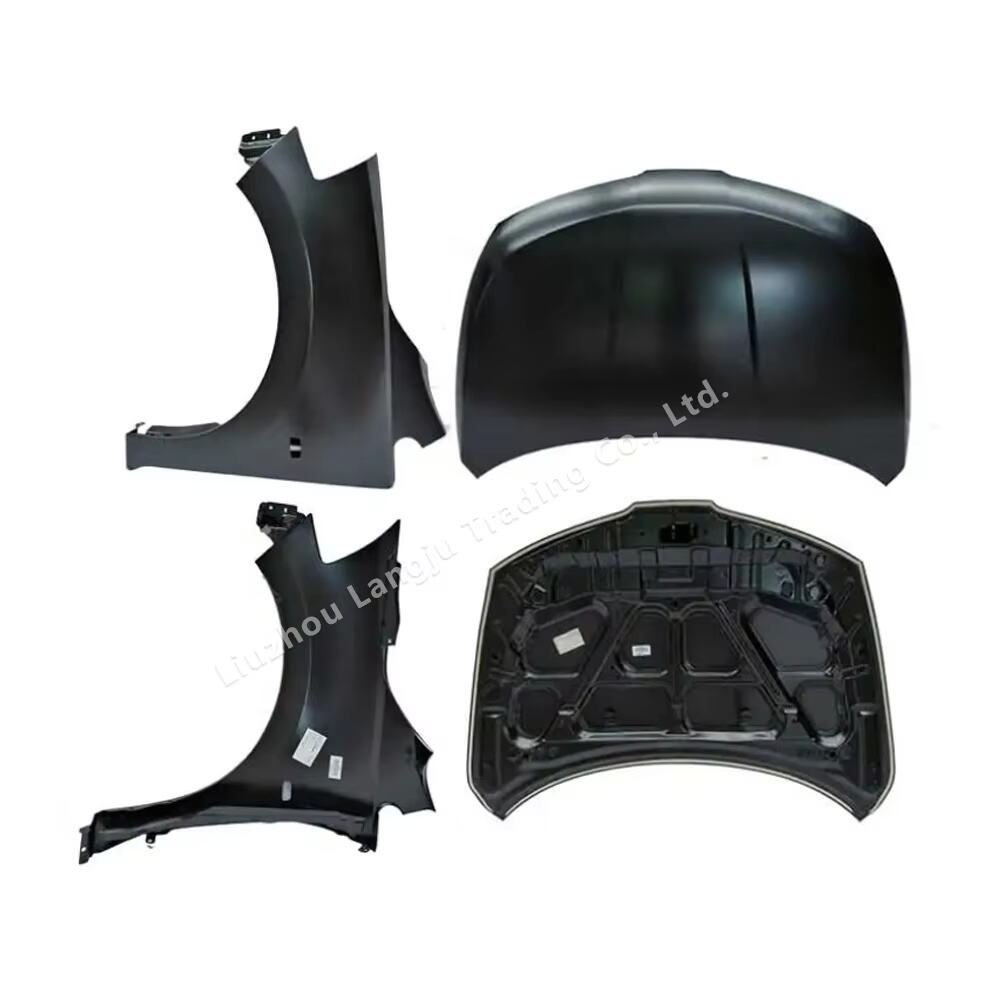الصناعة الحرفية الدقيقة تدفع التميز في تصنيع قطع غيار السيارات. يضمن أن المكونات تلبي المواصفات الدقيقة، وتقدم جودة وموثوقية لا مثيل لها. من خلال دمج التقنيات المتقدمة، يصل المصنعون إلى معايير السلامة والأداء العالية. هذا النهج الدقيق يعزز الابتكار و يرفع رضا العملاء و يضمن التزام الصناعة بالدقة والتميز
فهم الحرفية الدقيقة في تصنيع السيارات
تعريف الحرفية الدقيقة
التصنيع الدقيق يشير إلى العملية الدقيقة لتصميم وتصنيع مكونات السيارات بدقة متطلبة. إنه يؤكد على تحقيق تساهلات ضيقة وقياسات دقيقة لضمان أن كل جزء يعمل بسلاسة داخل نظام السيارة المعقد. هذا النهج يضع الأولوية على التناسق والجودة والموثوقية، والتي هي ضرورية في صناعة السيارات. يعتمد المصنعون على الصناعة الحرفية الدقيقة لتلبية معايير الصناعة الصارمة وتقديم منتجات التي تُحسّن أداء المركبة وسلامتها.
تقنيات وتقنيات الحرفية الدقيقة
صناعة الحرف الحديثة المحددة تستخدم تقنيات متقدمة وتقنيات متطورة لتحقيق دقة لا مثيل لها. تلعب الآلات التي تعمل بالتحكم الرقمي الحاسوبي دوراً محورياً، مما يتيح للمصنعين إنتاج أجزاء معقدة بدقة استثنائية. تقنيات قطع اللازر واللحام تعزز القدرة على إنشاء مكونات بأقل هوامش الخطأ. أحدثت التصنيع الإضافي، مثل الطباعة ثلاثية الأبعاد، ثورة في الصناعة من خلال السماح بالنموذج الأول السريع وإنتاج هندسيات معقدة. بالإضافة إلى ذلك، يستخدم المصنعون أدوات متروولوجية متقدمة، مثل آلات قياس الإحداثيات، للتحقق من دقة الأجزاء النهائية. هذه التقنيات تضمن أن الصناعة الحرفية الدقيقة تظل في طليعة الابتكارات السيارات.
دور المهنيين المهرة في التصنيع الدقيق
المهنيون المهرة هم العمود الفقري لصناعة الحرف الدقيقة المهندسون والمحركون والفنيون يضيفون الخبرة والاهتمام بالتفاصيل في كل مرحلة من مراحل عملية التصنيع. قدرتهم على تفسير الرسومات التقنية، وتشغيل الآلات المتطورة، وتسوية المشاكل تضمن إنتاج مكونات عالية الجودة. التدريب المستمر وتطوير المهارات أمر حيوي، حيث يجب على المهنيين التكيف مع التكنولوجيات المتطورة ومتطلبات الصناعة. إنّ التفاني في صناعة الحرف الدقيقة يدفع نجاح تصنيع السيارات، وضمان أنّ المركبات تلبي أعلى معايير السلامة والأداء.
أهمية الدقة في قطع غيار السيارات
ضمان السلامة والموثوقية
الدقة في تصنيع قطع غيار السيارات تؤثر بشكل مباشر على سلامة المركبات وموثوقيتها. يجب أن تلبي المكونات مثل الفرامل وأنظمة التوجيه وأكياس الهواء مواصفات دقيقة للعمل بفعالية. حتى الانحرافات الصغيرة يمكن أن تؤدي إلى فشل كارثي. يستخدم المصنعون اختبارات صارمة وتدابير مراقبة الجودة لضمان أن كل جزء يعمل كما هو مُقصود. على سبيل المثال، فإن التصنيع الدقيق يضمن أن أجزاء الفرامل تناسب بشكل مثالي، مما يقلل من خطر عطل. هذا النهج الدقيق يحمي السائقين والركاب، ويعزز الثقة في صناعة السيارات.
تحسين أداء المركبة وكفاءتها
تُساهم القطع المصنوعة بدقة بشكل كبير في أداء المركبة وكفاءتها. تعتمد المحركات، نقل الحركة، وأنظمة التعليق على مكونات مصممة بتسامح ضيق. تعمل هذه الأجزاء معًا بطريقة سلسة، مما يُحسّن تسليم القوة واستهلاك الوقود. على سبيل المثال، تضمن محققات الوقود المصممة بدقة تسليم الوقود بدقة، مما يُحسّن كفاءة الاحتراق.
تحسين الصمود وطول العمر
الصمود وطول العمر أمر ضروري لقطع السيارات، وخاصة في الظروف الصعبة. التصنيع الدقيق يضمن أن الأجزاء تتحمل التآكل مع مرور الوقت المواد عالية الجودة وتقنيات الإنتاج الدقيقة تصنع مكونات مقاومة للضغوط والآكل. على سبيل المثال، تبقى المكبرات المعدنية الدقيقة سليمة تحت الأحمال الثقيلة، مما يطيل عمر ناقلات التروس. هذا التركيز على المتانة يقلل من تكاليف الصيانة ويزيد من رضا العملاء. صناعة الدقة تضمن أن المركبات تبقى موثوقة طوال دورة حياتها.
فوائد الحرفية الدقيقة
الحد من النفايات وتحسين الموارد
الحرفية الدقيقة تقلل من هدر المواد من خلال استخدام تقنيات تصنيع متقدمة. تسمح العمليات مثل التصنيع باستخدام CNC والطباعة ثلاثية الأبعاد للمصنعين باستخدام المواد الخام بكفاءة. هذه الطرق تقلل من المواد الزائدة عن طريق القطع أو الطبقة بدقة عالية. على سبيل المثال، تقوم الطباعة ثلاثية الأبعاد ببناء الأجزاء طبقة تلو الأخرى، مما يضمن استخدام المادة اللازمة فقط. كما يقوم المصنعون بتحسين الموارد من خلال تصميم مكونات تتطلب تعديلات أقل أثناء الإنتاج. هذا النهج يحفظ الطاقة ويقلل من التكاليف المتعلقة بإزالة المواد.
تحقيق كفاءة التكلفة
كفاءة التكلفة هي ميزة كبيرة من الحرفية الدقيقة. تقليل الأخطاء، وتقليل الحاجة إلى إعادة العمل أو استبدال. الأنظمة الآلية، مثل آلات CNC، تسهل العمليات وتقلل من تكاليف العمالة. بالإضافة إلى ذلك، غالبًا ما تكون الأجزاء المصنوعة بدقة أطول من العمر، مما يقلل من تكاليف الصيانة واستبدالها للمستهلكين. المنتجون يستفيدون من جودة ثابتة، مما يزيد من سرعة الإنتاج ويقلل من وقت التوقف. هذه العوامل تساهم في توفير التكاليف بشكل عام، مما يجعل صناعة الحرفية الدقيقة استثمارًا قيمًا لصناعة السيارات.
زيادة رضا العملاء
الصناعة الدقيقة تؤثر بشكل مباشر على رضا العملاء من خلال تقديم قطع غيار السيارات الموثوقة عالية الأداء. المكونات المصنعة بدقة تلبي معايير الجودة الصارمة، وضمان تشغيل المركبات بسلاسة وآمنة. يقدر العملاء متانة وفعالية الأجزاء المصنوعة بدقة، مما يقلل من احتمال حدوث حوادث تعطيل. علاوة على ذلك، فإن القدرة على إنتاج قطع الغيار المخصصة تعزز تجربة العملاء من خلال تلبية الاحتياجات المحددة. الصناعة الدقيقة تعزز الثقة في علامات السيارات، وتعزز ولاء العملاء ورضا.
الصناعة الحرفية الدقيقة لا تزال ضرورية في تصنيع قطع غيار السيارات. إنها تضمن جودة عالية وتعزز الابتكار لتلبية متطلبات الصناعة. مع تطور التكنولوجيا، سيستمر المصنعون بالاعتماد على الحرفية الدقيقة لدفع التقدم. هذا النهج يضمن أن المركبات تحقق أداءً وأمانًا وموثوقية مثالية ، مما يؤكد دورها كحجر أساس للتميز في التصنيع.

